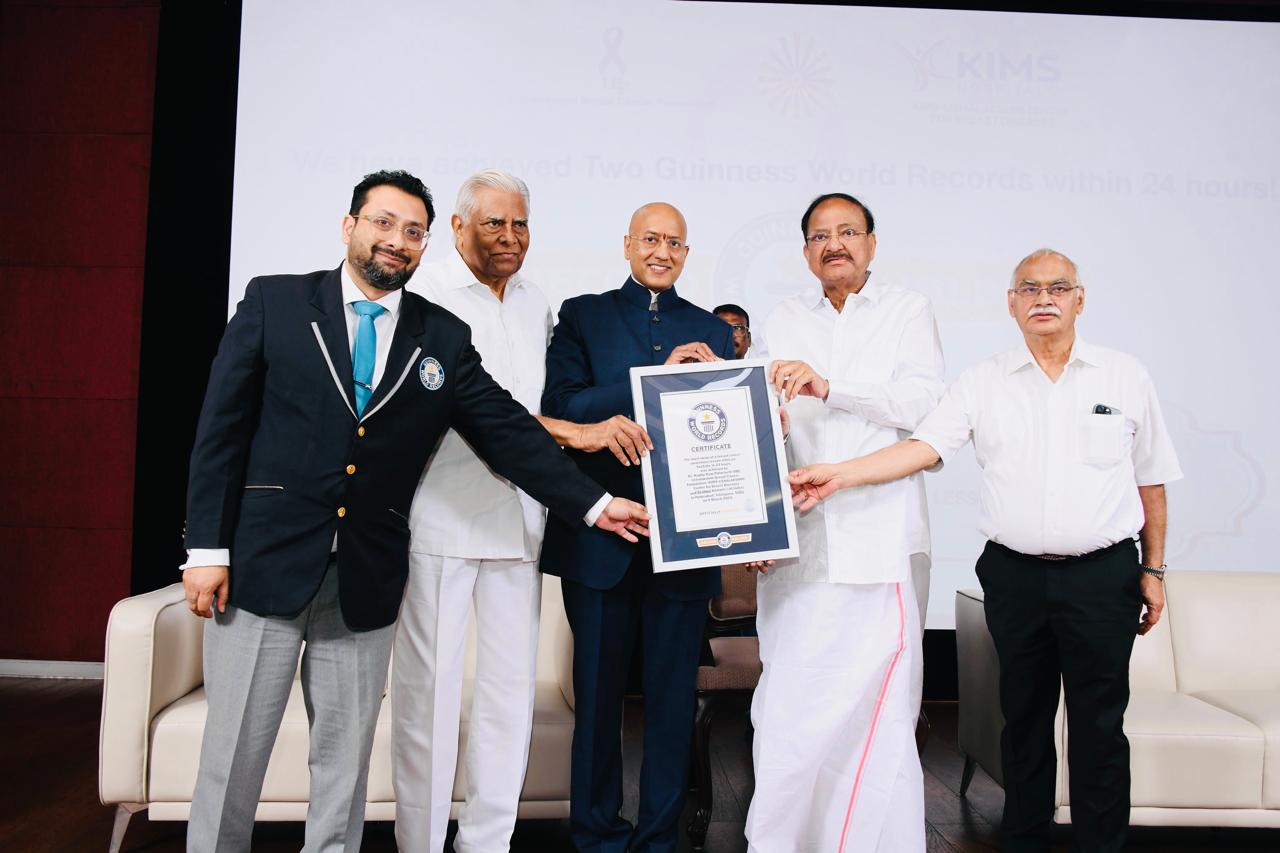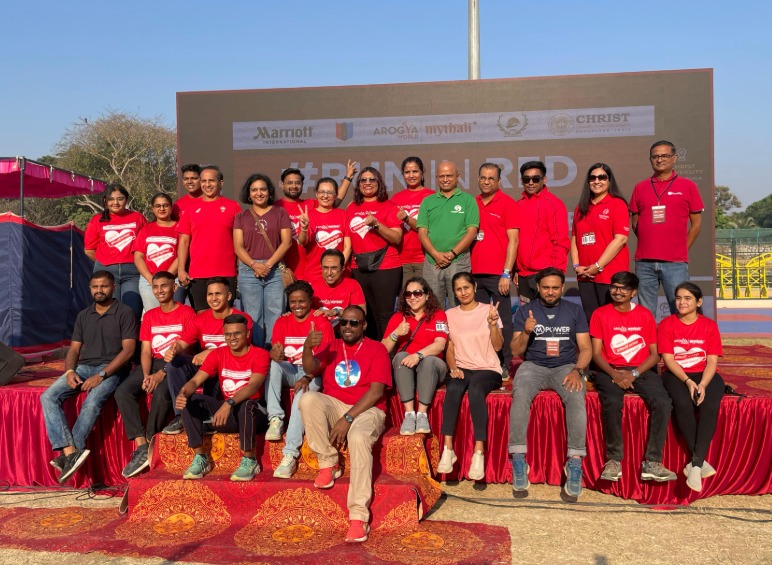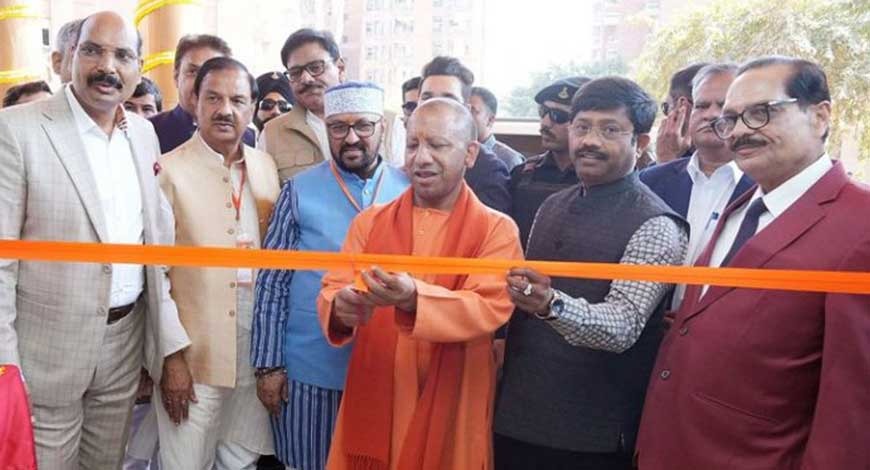Ensuring Quality, Equity and Dignity for Newborn Care at Every Health Facility and Everywhere: Commemoration of the National Newborn Week 2020 in Maharashtra: Media interaction on promoting newborn care in the midst of Covid 19 pandemic in Maharashtra
There is continuous decline of under five mortality rates in Maharashtra in last few years, but decline in neonatal mortality has been slow. Further, Covid 19 pandemic may have slowed down or even reversed the

There is continuous decline of under five mortality rates in Maharashtra in last few years, but decline in neonatal mortality has been slow. Further, Covid 19 pandemic may have slowed down or even reversed the gains made in last several years in maternal and newborn health in the state. It is estimated that Covid 19 pandemic will result in an increase of 9·8–44·7% in under-5 child deaths per month, and an 8·3–38·6% increase in maternal deaths per month, across the 118 countries including India due to reduced access the health services and due to increase in malnutrition. National Newborn Week commemorated during 15-21 November 2020 provides an opportunity for renewed commitment for promoting maternal and newborn health in the state. This media interaction aims to sensitize the media personnel across the state for social mobilization for promoting the maternal and newborn health as well as mobilizing all health care providers for providing respectful maternal and newborn services following Covid 19 prevention behaviours.
Institutional delivery is low among urban poor, tribal population and they represent the last mile population for reducing maternal and newborn death. Another major challenge in Maharashtra is the low birth weight babies (LBW), defined as a newborn with birth weight less than 2500 grams. About 20% of the babies are born LBW every year and there is no reduction in the proportion of LBW babies in last decade as per the data from National Family Health Survey 3 and 4. LBW babies are at increased risk of under-five mortality, stunting and poor cognitive development, and of non-communicable diseases (NCDs) in the adult life. Even though India contributes to about 18% of global births every year, it accounts for 37% of global low birth weight burden. Globally, LBW babies constitute only about 14% of children born but they account for 60–80% of neonatal deaths. During the National Newborn Week of 15-21 November 2020, various activities will be organized to create a buzz around prevention of low-birth weight through pre-conception care and antenatal care; promoting institutional delivery, specially among tribal population and urban poor; promoting essential newborn care including birth dose vaccination and Vitamin K administration after birth and promoting care of small and sick newborn through facility and home based Newborn care and Kangaroo Mother care.
A virtual media interaction is organized by UNICEF jointly with professional associations of Maharashtra: Association of Maharashtra Obstetrics and Gynecological Societies; National Neonatology Forum and Indian Academy of Pediatrics Maharashtra Chapters for promoting maternal and newborn care in the state of Maharashtra on 18th November 2020 (between 15:00-16:30 hours). During the Media Interaction, key messages on maternal and newborn health promotion were disseminated, which include:
- Prevent neonatal mortality by preventing low birth weight and prematurity by implementing preconception and antenatal care programme: Couples should plan their pregnancy when they are healthy: woman is not below 18 years of age, she has normal Hemoglobin level, her body weight and body mass index is normal, she is not suffering from diseases like diabetes mellitus.
- Every pregnant woman should have full antenatal care, take adequate diet and rest and plan for the delivery at a health facility.
- Every pregnant woman should deliver at health facilities having skilled birth attendants and every high risk pregnant woman should deliver in health care institutions having cesarean section facilities.
- Every newborn should be provided with essential newborn care, and mother and baby pairs should be kept together, in skin to skin contact for at least one hour after birth and every newborn baby should receive birth dose of Hepatitis B vaccine, OPV and BCG vaccine and Vitamin K injection after birth.
- Every newborn baby should initiate breastfeeding within one hour of birth and should be exclusively breastfed during first six months of life. Every newborn baby should be kept warm at all times and the umbilical cord should be kept dry
- Every woman should do hand washing before feeding, after cleaning the newborn and after visiting the toilet. Every woman should recognize danger signs and visit nearest hospital, if these signs are present.
- Every newborn born with low birth weight (weight less than 2.5 kg) or born too early (before 37 weeks of pregnancy) should be cared through Kangaroo Mother Care and in the Special Newborn Care Units at district hospitals.
“While Maharashtra has made very good progress in reducing maternal and under five mortality, and achieved the Sustainable Development Goals, the reduction of neonatal mortality is slow and the state has not achieved the target for newborn mortality reduction as yet. Covid 19 pandemic has increased the risk of these deaths due to disruption of services and increase in malnutrition. UNICEF is committed to support the government and professional associations in the state for reducing maternal and under five and neonatal mortality in the state” said Ms. Rajeshwari Chandrasekar, Chief of the Field Office.
Dr. Nandita Palshetkar, President Association of Maharashtra Obstetrics and Gynecological Societies (AMOGS) highlighted the critical role that Private Health Sector plays: About 41% of all institutional delivery takes place in the private sector in the state (Source: NFHS IV); Has been implementing the Pradhan Mantri Surakshit Matritva Abhiyan; AMOGS has partnered with GOM, JHPIEGO, UNICEF for implementation of LaQSHYA Manyata programme in the private hospitals in the state; One of the first guideline on preconception care in the world was formulated by FOGSI in 2016 for Indian population. AMOGS has partnered with Public Health Department and UNICEF for sensitization of all members on Pre-conception care. AMOGS also supported the Covid 19 response by transforming private hospitals to Covid 19 care centers; continued ANC, comprehensive abortion care, family planning institutional delivery services and gynecological services; drafting guidelines for care and treatment of pregnant women who are Covid 19 positive and trained members of AMOGS on Covid 19 treatment and care among pregnant women. “Obstetricians play most critical role in the maternal and newborn death reduction in the state. AMOGS is committed to strengthen maternal care in the entire state of Maharashtra” Said Dr. Nandita Palshetkar, President of AMOGS.
Prof. L. S. Deshmukh, Professor of Neonatology of Government Medical College, Aurangabad and past President of National Neonatology forum, Maharashtra highlighted that early initiation of breast feeding, skin to skin care immediately after birth, Kangaroo Mother care for small and sick newborn babies will save many lives of the newborn in the state.
Prof. Pramod Jog, Past President of Indian Academy of Pediatrics said “Pediatricians have contributed immensely for promoting the health of the newborn and the child. Programmes like Immunize India for promoting immunization, Breast Sutra for promoting early initiation and exclusive breast feeding, activities for promoting Kangaroo Mother Care will go a long way for reducing the newborn death rate in the state.”
Prof. Aparna Shrotri, past President of AMOGS highlighted the need for preventing low birth weight through pre-conception care and the need for promoting quality of care in the private sector hospitals.
Prof. Mrudula Phadke, one of the most respected Pediatrician in India, Professors of Pediatrics and senior Fellow of Indian Academy of Pediatrics in India and recipient of the Hon. President of India award for 20 Gold Medal for Academics highlighted the need of partnership and continuum of care for promoting maternal and newborn health. She highlighted the need for convergent intervention for promoting weight and Body mass index among women who have low BMI, preventing anemia, promoting quality antenatal care, breast feeding and immunization, specially at birth.






